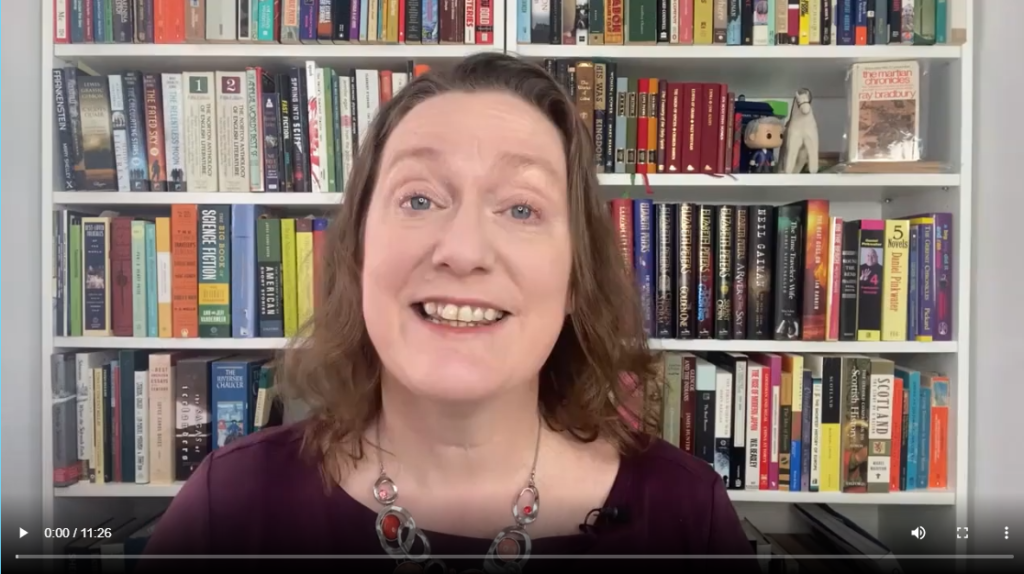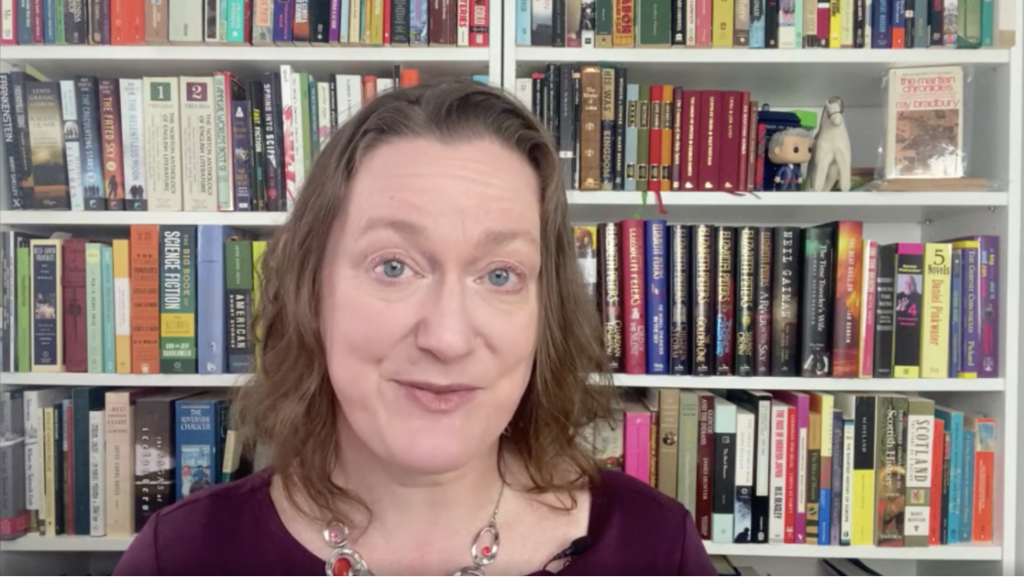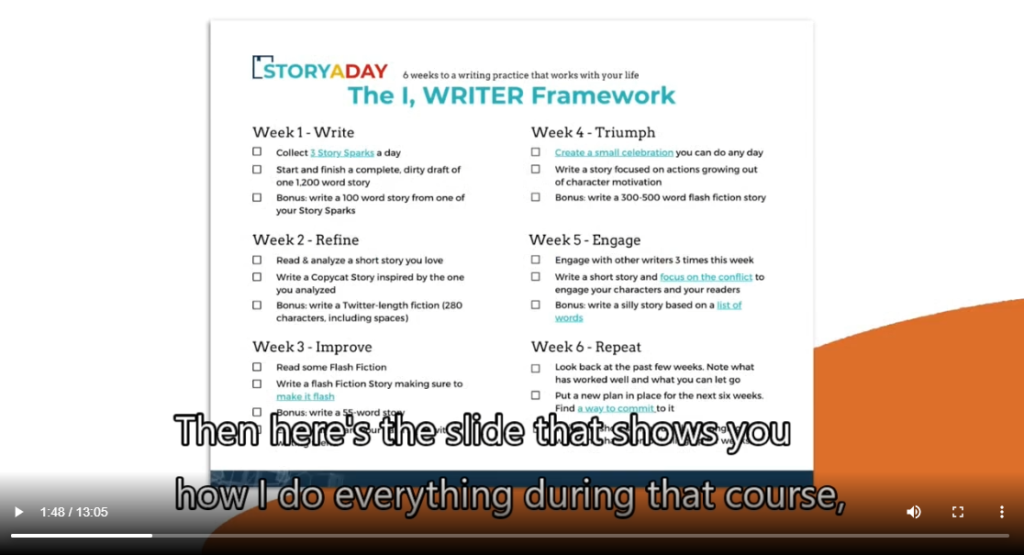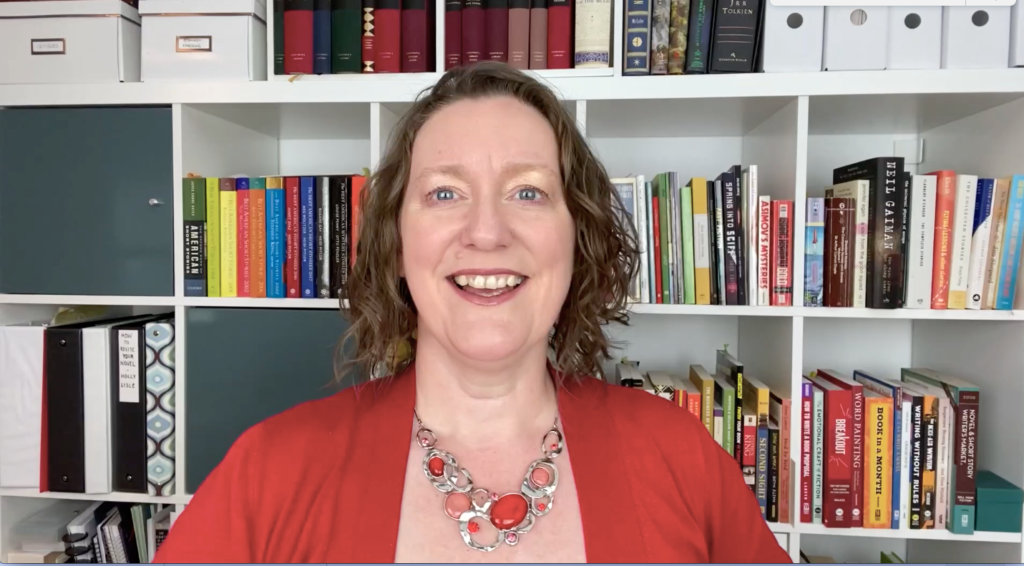Writing Isn’t Just “Writing”
There’s more to a writing life than simply sitting down at your desk and writing.
But it doesn’t have to be overwhelming.
You can make steady progress and it can feel a lot easier than we often make it seem.
Why Should You Believe Me?
I’m Julie Duffy and I’ve been helping writers become more productive, more creative and more fulfilled since 1998, the past 10 years of that as the host of the StoryADay May challenge and community, which is regularly picked as one of Writer’s Digest’s 101 Best Websites for Writers.
During that time I’ve met a lot of people who want to be more successful in their writing life, but are struggling to find the right next steps for them.
In This Series
Spend the next few days with me, exploring the framework I’ve uncovered for building a satisfying writing practice so that you can begin to make meaningful progress in your writing and start bringing your stories to a world that is hungry for connection.
I call it the I, WRITER Framework.
Your Voice Matters
Writers in the StoryADay community come from all kinds of backgrounds, working class and wealthy, white, black and brown, gay, straight and pan, all flavors of religious and non-religious backgrounds. We have people from almost every time zone… and each of these people has something to share with a reader who needs to hear it.
You do, too.
The World Needs Your Story
Remember being that kid with your nose buried in a book, falling in love with the character that seemed a little bit like the best version of you?
Those stories made us believe it was possible for someone like us to be the hero?
We can do that for the readers who need to hear that message, today.
I am on an unapologetic mission to get you writing more, and sharing your stories because I know there are people who need the stories only you can write.
And I know you can do this because I’ve helped so many writers, including myself, get there.
What Type of (Frustrated) Writer Are You?
Ten years ago I was at home with young children–who I adored–but with no family nearby, I was busy, busy, busy…always thinking “I will get to my writing tomorrow”.
Sound familiar?
For you, it might be work, or other types of caregiving, or the demands of your friends or some other factor pulling you away from your creative calling, but I know you know what I was feeling back then: it feels like losing part of yourself.
Or maybe you’re one of those people who has figured out how to prioritize time for writing in your life.. And yet you feel a little stagnant, like you’re not making measurable progress quickly enough.
Or maybe you’ve signed up for a challenge like StoryADay or NaNoWriMo and you’ve realized it’s all just a bit too unstructured for you. You know you do better with a curriculum, but you don’t know where to find one that fits you like a glove.
That’s what I want to talk to you about in this series.
There is a Structure
There is a structure for creating a life that includes
- writing, and
- making measurable progress towards your goals, and
- becoming more productive, more creative and more fulfilled,
And doing it in a way where each action builds on the last until you have an integrated writing practice that fits your life and your goals.
HOPING that we’re going to figure out this writing thing one day doesn’t get us there.
Putting a plan and framework in place, does.
Stories From Their Lives
I’ve been talking to some of the writers in the StoryADay community about this and I’m going to be sharing more about their journeys in this series, to prove to you that whoever you are, and where ever you live, you can be a writer.
I’ll introduce you to Janine who struggled to write consistently and used this framework to discover what it is that she really wanted to be writing, and how to give herself permission to do that.
You’ll meet Safiya who said it ‘opened up a whole new venue’ for her writing that she hadn’t known existed.
And Neha who learned to appreciate her writing as a cyclic activity with different times for different tasks throughout the year and accelerating her progress because of it.
And I’ll introduce to you Jeff who moved from being paralyzed by the idea that his writing wasn’t good enough, to learning to love the process and who’s writing every day now.
Think You Hate Rules?
When I talk about a framework or a structure many creative people bristle.
(A wise friend of mine told me, “Artists never follow the rules. They just go and invent the better way.”)
Rules can feel restrictive and we worried about getting bored.
But what I’m talking about is the underlying structure of a successful creative life.I want to show you a framework that supports you while you get to dress it up any way you like.
On The Shoulders Of Giants
When Michaelangelo painted the Sistine Chapel ceiling, one of the sublime works of art in the western world, he didn’t waste time with ladders or experiment with paint brushes on long poles.
No, he used a technique that has been in use since Neolothic times: scaffolding.
Michaelangelo erected a framework and quickly scaled it to stand on a stabilized board 60 feet in the air. It let him get as quickly as possible to the important part of the work, the creative work. He didn’t have to invent the whole process. And it didn’t seem to stifle his creativity noticeably.
Building the I, WRITER Framework
I looked back over 10 years of working with writers who have stayed in this game for the long haul. I’ve pulled out the common elements of their practice and the I, WRITER framework lays them out like scaffolding that you can use to support and stabilize your creative ascent.
I want to show you how to make writing easy.
Not effortless.
But fulfilling rather than frustrating.
Why Is Writing (Sometimes) So Hard?
Let’s talk about what writing is. Because it’s not just ‘writing’.
- First, you have to be able to string words into compelling sentences. That tends to be what people picture when you talk about being a writer: someone at their desk, spinning sentences into gold.
- Before you get there though, you need imagination, ideas, inspiration for characters who’ll bring those ideas to life. And the techniques to do that in words.
- Before that, you need to build time and space into your life to allow those ideas to develop
- You need to write the imperfect first draft
- You’ll need to develop the skills and knowledge to improve your writing through editing & revision, taking feedback and learning to trust our gut.
- Then we need to learn how to share those stories whether we’re sending them to friends, self-publishing or pursuing traditional publishing.
- We have to connect with others in the writing world and the reading world
- And we have to do it all over again for the next project.
That’s a lot more than simply traipsing to our desks and churning out deathless prose! Are we still surprised that it’s hard to make progress in our writing?
And all of it takes time and effort. It also courage and persistence and willpower, things that are easier to access when you have a support system in place
Now that you can see that writing is a complex process of decisions and tasks and new skills, do you feel a little better about the fact that you haven’t got further, faster? Can you begin to see how writing is as much about having a process as it is about turning out a product?
Seeing The Forest AND The Trees
I’m not telling you this to overwhelm you.
In fact, In the next part of this series I’m going to teach you the whole I. WRITER framework so you can begin to think about your writing life as a manageable endeavour.
Each of the letters in I, WRITER stand for part of the process:
I, Imagine
W, Write
R, Refine
I, Improve
T, Triumph
E, Engage
R, Repeat
In Part II of this free class I’ll show you how you can use this framework to isolate the areas of your writing that need attention at any given moment, and, crucially, block out the non-essentials, so you can focus on making progress, and meeting your personal writing goals.
I’ll show you how you can use the framework to clarify everything from mindset to idea generation to engaging with the wider world, and staying consistent over the long haul.
You can also use it during the writing process, to stay laser-focused on the correct part of the process for the stage your project’s in, so that you can more quickly draft, revise and share your stories.
I’ll also tell you about an experiment I began earlier this year that transformed my writing life and the lives of many people in the StoryADay Community. I wonder if you’ll be as surprised as I was, when I saw the results.
Tell Me How You Feel
But before we get to that, I want to hear from you.
Are you already a fan of structure and routine and if so, what works best for you?
Are you resistant to the idea of following a framework in your writing life?
What does that bring up for you?
Either way I’d love it if you’d leave a comment telling me what comes up for you when I talk about ditching blind hope and putting in place a plan for your writing.
Leave a comment and I’ll see you back here soon.




